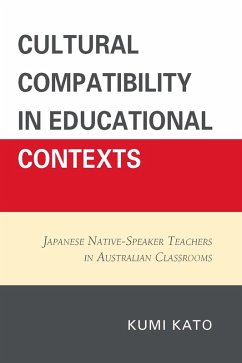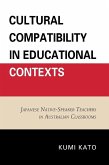Cultural Compatibility in Educational Contexts examines the mechanism of control and efficacy underlying specific cultural contexts, intercultural value differences, and consequential conflicts, which invisibly and unintentionally cause communication difficulties and negative performances. This specific study centers on Japanese language classrooms in Australia taught by native Japanese speakers. Comparative studies were carried out in classrooms in both Japan and Australia, and identified specific teaching strategies perceived to be effective in each cultural context. The book concludes by asserting that the notion of culture in the educational context goes beyond ethnic and linguistic differences; an awareness of cultural compatibility should be recognized as one of the professional responsibilities of all educators. This is particularly relevant to multicultural societies such as Australia, where both teaching and learning populations are increasingly diverse, as well as being applicable to other social contexts.
Bitte wählen Sie Ihr Anliegen aus.
Rechnungen
Retourenschein anfordern
Bestellstatus
Storno









